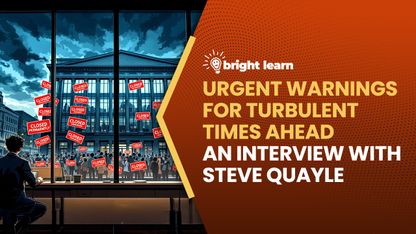
Professor Eric Caumes, the head of a major Paris hospital’s infectious and tropical disease department and a top COVID-19 expert in France, said that he has never seen so many undesirable effects from a vaccine as we’re seeing with Pfizer’s jab, which is expected to be distributed widely in France next month.
In an interview with the French daily Le Parisien, he discussed the problems he noted after reviewing a report by the FDA on the Pfizer vaccine, saying: “As I read the 53 pages, something struck me. I have never seen such a high frequency of adverse events for a vaccine. Apart from minor injection reactions such as local redness and pain, other side effects occur at relatively high rates, especially in young people and after the second dose."
He pointed out that while fevers are not that unusual after receiving any type of vaccine, 15.8 percent of people aged 18 to 55 had a fever of 38 degrees Celsius or higher in the week after the second shot of the COVID-19 vaccine, and 45 percent needed medication to help with fever or pain. A further 55 percent had headaches, he said, while 62 percent were tired. “No, really, that's much too much, perhaps there's a problem … ”, he added.
Caumes mentioned that he is normally a big defender of vaccines, which he believes are miracles and “the most intelligent drugs there are, since they prevent rather than cure.” Nevertheless, he felt compelled to tell the truth about the COVID-19 vaccine because he fears people will stop trusting doctors if they don’t discuss these issues.
The French government has already purchased enough doses of the COVID-19 vaccine to give double shots to 100 million people despite having a population of just 68 million. They plan to start administering them to the masses in January. Caumes expressed concern that the French government already paid for the shots “without even knowing if they were safe.”
“If we mess this up, the entire history of vaccinology will be discredited,” he said.
We don't have any proof the vaccine is safe
Caumes was also asked by Le Parisien for his opinion on authorities in England issuing an emergency recommendation two days into their vaccination campaign advising those with severe allergies to avoid the shot after some patients experienced serious side effects. He said that he was surprised because these types of reactions did not appear in the FDA’s documentation, which is his only source. “This confirms we should not rush,” he said.
While he still feels that elderly people who have the greatest risk of dying from COVID-19 should get the vaccine, he does not believe young or healthy people should be lining up for the shot. He said that on top of the lack of information about it, mRNA vaccines have never been used before.
He said: "Perhaps they are revolutionary, but I want proof of their reliability, otherwise it is tantamount to placing blind trust in industry.”
Caumes has also said that if French people are careless over the holidays, the country could see a third wave of the virus hit around the middle of January. He believes cases are not dropping there because people are not following social distancing measures.
The French government’s second lockdown was lifted today and will be replaced by a curfew. People in the country will be allowed to move freely during the day but may only leave with authorization during the hours from 8pm to 6am.
People around the world are eager to see the pandemic end, but there are still so many unanswered questions about this vaccine and it's important not to let these hopes outweigh common sense.
Sources for this article include:
Please contact us for more information.






















